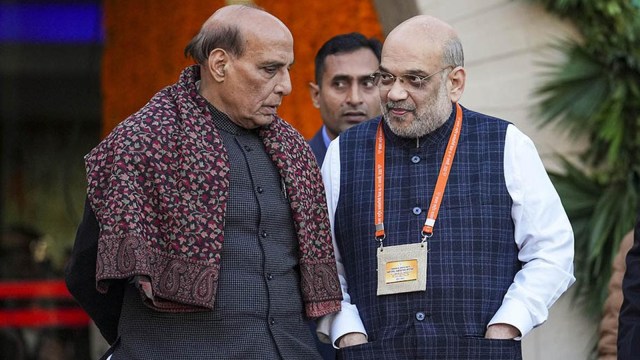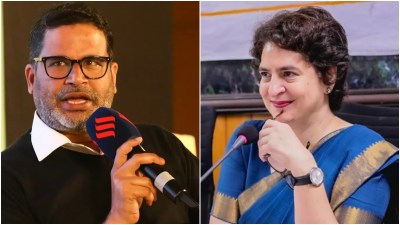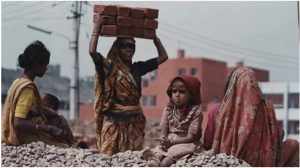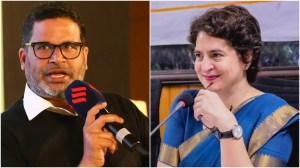TWO NEW informal groups of ministers (iGoMs) have been formed by the Centre under Home Minister Amit Shah and Defence Minister Rajnath Singh to prescribe reforms in the economic and social sectors, respectively.
Shah’s panel comprises 13 members, including Finance Minister Nirmala Sitharaman and Commerce and Industry Minister Piyush Goyal, with Minister of Railways, I&B and Electronics & IT Ashwini Vaishnaw as the convener.

This group will focus on laying out the legislative and policy reform agenda in the technology and economic sectors, including finance, industry, commerce infrastructure, logistics, resources, science and technology, and governance.
The second 18-member grouping on social, welfare and security sectors is headed by Defence Minister Rajnath Singh. This will examine the scope for reforms in sectors including education, healthcare, defence, skilling, social welfare, housing, labour, public health etc. Others in this panel include Road Transport and Highways Minister Nitin Gadkari, Agriculture Minister Shivraj Singh Chouhan, with Labour and Sports Minister Mansukh Mandaviya designated as its convener.
The groups have beens set up following Prime Minister Narendra Modi’s Independence Day address where he pressed home the need for next-generation reforms and announced the setting up of a task force. “Current rules, laws, policies, and procedures must be redrafted to suit the 21st century, to fit the global environment, and to align with the vision of making Bharat a developed nation by 2047,” Modi had said in his address.
Both groups have been asked to submit monthly reports on the progress made, followed by a consolidated reforms roadmap at the end of three months. Secretarial support for this would be provided by the Finance Ministry’s Department of Economic Affairs. The chairs of the two GoMs are vested with the mandate to invite ministers, secretaries and subject matter experts, as and when required.
A government source said these two panels are expected to go beyond just advisory roles and prescribe actionable roadmaps, with measurable outcomes to track these actions. Some of these metrics, sources said, include a calibrated and quantifiable reduction of compliance burden on citizens and businesses; driving employment generation and productivity enhancement, dismantling legacy bottlenecks and identifying reforms at the Central, State and municipal corporation levels.
Story continues below this ad
ExplainedPolitical heft for fast action
The composition of the two panels suggests the Prime Minister is keen to reflect the criticality of pushing through these small and big decisions that hold back progress both on the social and economic front. It includes many ministers so that quick actions can be taken on recommendations.
The panels have also been tasked with suggesting legislative reforms that include repeal or changes to existing laws and readying the draft enabling legislations for futuristic sectors including digital health, fintech, the gig economy etc; identifying policy reforms; highlighting process-focused reform and institutional reforms that span the central, state and local levels.
Earlier, in a bid to impart urgency to overhauling the Goods and Services Tax regime, Home Minister Shah is learnt to have been roped in to coordinate with all stakeholders — states as well as Central ministries — to resolve contentious outstanding issues.
His intervention in thrashing out the GST consensus was described as “normal” and was cited by a source as being helpful in resolving “politically sensitive issues” and “those that need support from states”. There have been instances in the past when he was part of the meetings, including his involvement in discussions on disinvestment and as the chair of meetings on price rise of staple food items in the past.
Also, while a new Bill on real-money online gaming that prescribes sweeping bans and harsh penalties for both platforms and their promoters has been drafted by the IT Ministry, the Union Home Ministry is being viewed by the industry as the driving force behind the move. While the IT Ministry prepared the legislation, key major gaming industry associations sent a letter to the Union Home Ministry saying that the blanket prohibition will “strike a death knell for this legitimate, job creating industry, and would cause serious harm to Indian users and citizens”.

































